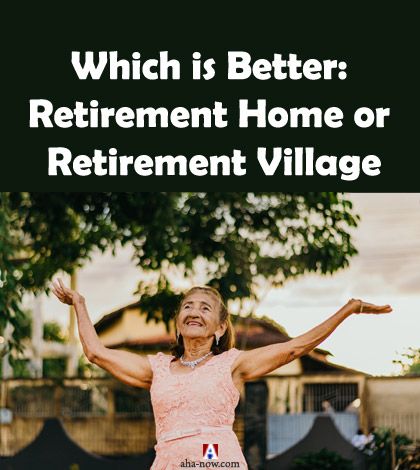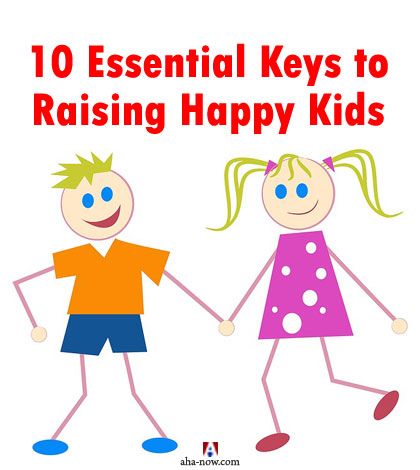Which is Better: Retirement Home or Retirement Village

Table of Contents
Many people prefer to live in a retirement home or a retirement village after retirement. It may seem confusing or difficult to decide which one of the two post-retirement living options are better for you or your loved ones. Here is a brief introduction to these options and their special features. These may help you to make a better choice. ~ Ed.
Can you get adequate care in a retirement home, or is it best to move to a retirement village that meets your requirements for long-term care?
You might be asking yourself this question right now thinking about what to do when you age. Or, asking what would be in the best interest of an aging parent or grandparent.
Making choices can be difficult, and you’re going to need as much information as possible when choosing between two things. You don’t want it to come down to flipping a coin!
Obviously, the topic of retirement home vs. retirement village is a big decision, and the decision you make will have a heavy impact. That is why it has to be an informed decision.
How to Make the Best Choice for Your or Your Loved One’s Post-Retirement Home
When choosing, you usually would want to make a decision that is right for you, regardless of others. But in this particular situation, if it’s about your aging parent or grandparent, you will be choosing what is right for others.
Your heart might be fighting the idea to send an aging member of your family to a home or village, but your mind is telling you this could be the best and the only options for them. With so many of us too busy, we just might not have the time or the means to take care of an aging loved one. In most cases, the older the person gets, the more help they will tend to need to perform even simple tasks.
Moving a loved one to an aging facility can be scary because you don’t know for sure how the person will be treated in a home or village. We’ve all heard horror stories about the treatment of the elderly in some situations, but thankfully almost all the time these are isolated cases and ill-reputable facilities will be subject to investigations and even shut down.
The first step in knowing what is better and making the best choice is to know the difference between the post-retirement living options.
Knowing the Difference between Retirement Homes and Retirement Villages
There is no way to make a mindful decision if you are not aware of the difference between both types of retirement places. Often times, the terms are used interchangeably, and this needs to be clarified, so you do not get misinformed.
But to start off with, the average age of retirement is 63 years old. The average length of retirement is 18 years. While millions of people can live and take care of themselves after retirement and well into their late 70s and early 80s, many others cannot whether due to physical or mental reasons.
It would be considered negligent and dangerous to leave an elderly to fend on their own when you know they are not capable of doing so. The elder’s capabilities would be important, if not the main, deciding factor in moving to a retirement home or village, which we will discuss now.
What is a Retirement Home?
A retirement home is essentially understood as a facility intended to suit people in their senior years. They are meant to maintain a good quality of life of a person as they age in their mental and physical well-being.
People should take note that retirement homes are not equivalent to nursing homes. Their biggest differences are in the method of providing medical care.
A person with some mobility restrictions, for example, might find a retirement home to be a good choice. Nursing home means a person needs 24/7 medical supervision and nursing care. Yet they both give support in what is known as Activities of Daily Living (ADL). This could include bathing, grooming and other types of personal care.
Types of Retirement Homes
There are different types of retirement homes, and each type does provide different care for the elderly. These types are:
Nursing Home
A nursing home is for the elderly who can no longer live on their own and need help all around the clock. Here you will find skilled nurses caring for an elderly because there could be complex medical issues to deal with.
In most cases, this is a long-term care facility.
Assisted Living
As its name implies, assisted living facilities are for seniors that need assistance, but not as much as they would receive in a nursing home. They receive help in their medication, if any, housekeeping, meals, and other daily living situations.
Most of the time, residents share apartment-like living quarters, and usually, there is a central cafeteria and central living room-like area. Within the facility, residents can enjoy age-appropriate activities and exercises for those who need assistance but not totally dependent on that.
Many assisted living facilities will provide transportation back and forth to other places, such as in the city center, for their residents. The person will only be free to a certain extent, and there is usually a lack of privacy in these facilities.
What is Retirement Village?
Retirement villages can also be considered retirement communities, and they are becoming a hot spot for even those just recently retired.
The traditional understanding of any senior-care facility is a gloomy place for the elderly, but these days, people of recent retirement are making a conscious decision to move into retirement villages. One of the main reasons they do that is to avoid forms of isolation and inactivity that tend to lead to depression of a retired person after leading an active life.
The closest thing to describe a village is a neighborhood; in many cases, even a resort-style living. Renting or buying an apartment is widespread in these types of villages. You can own your own property but also have access to several services and basic support and care services. Lots of seniors who move into retirement villages find the experience so positive in transforming their senior years.
In these villages, you are responsible for yourself, but within a safe community where if you do need help, it will be available.
These villages are common in the United States, New Zealand and Australia. Yet, the laws may differ. For example, in New Zealand, you must first be examined by the district health board (DHB) to know if you need a nursing home. If your mental and physical health allows you, and you don’t need assistance, you can decide to live in any of the several independent retirement homes in NZ that are definitely like a vacation all on their own.
This tells you that the process of moving into a retirement home differs very much from moving into a retirement village. Many of these villages will host an open day or event that you can attend and get a feel of what it would be like to live there.
Retirement Village Features
There are several features of a retirement village that make them quite appealing to seniors, such as:
Freedom
A good community will give you a complete sense of freedom. It is not much different than moving home to another neighborhood. You can find communities that accept pets, for example, or live in a home with a garden if you have a green thumb. You can decorate your home as you like and are free to have friends and family visit at any time.
Social Scene
There tends to be a good social scene, and as in almost any other small ‘village,’ people know each other by name, get together and do things together should they wish. This gives residents an active lifestyle, but you can keep a low profile too if you want.
Options
Retirement villages can have different options in services and the home you will stay in. Lots of people, after retirement, would rather downsize to smaller homes, which makes cleaning and organizing less of a pain. Others might want bigger homes, expecting family members to maybe spend a day or two with them. It’s really up to the resident what they want to do, but the options are available.
Which is Better?
Based on what you know now about the different facilities, you can say that as long as a person is healthy and capable, a retirement village can be their best option because of the freedom as well as privacy they can have.
It needs to be clarified that it is the health of a person, not the age, that is a deciding factor. You could be 75 but much healthier than a 65-year-old, or someone even younger.
If you are considering to seriously move or have someone moved to a retirement village, the important thing is to choose a facility or village where they will be happy, secure, and feel comfortable. Here are a few tips on what to look for to choose the best options available.
Ask
Your family doctor can perhaps recommend which is more convenient and might recommend a few different places. Social workers might also help, as well as friends or family. Asking around will help you collect the necessary information.
Visit
Make sure to visit a facility before getting carried away by the outside look. Many of them are built on beautiful grounds with a lovely landscape, but you want to know more about the inside than the outside. Schedule a visit, and you can make a second pop visit. Actually, the best time to visit is during mealtime to see if there are good options for the residents.
Check for Violations
A small search online will give you vital information if a facility has committed violations. While you might find good nursing facilities with one or two minor violations, make sure there are no major or severe violations.
Cost
The cost is obviously a factor to consider, and you want to make sure you’re getting what you paid for. At the very least, the village should have telephone and cable utilities, housekeeping, laundry services, social and cultural events, and health and wellness programs. So this means doing your research before committing to any place.
Location
If you are the one making the decision for a loved one, you want a facility that is somewhere near you. If it’s not close to you, then at least close to another person you trust. A long drive done once is doable, but if needed to be done a couple of times a week, you could get tired or lazy and not see your loved one as often as you’d like to.
The Reputation of the Facility
Read and use online reviews to help you make a decision. Check and see how long the facility has been around, how long management has been working there, and how long employees have been working, or other types of questions you should ask.
Visiting Times
While retirement villages will not have restrictions on this, retirement homes usually do. You want to know the hours and days when you can visit or have someone visit you.
Read Before You Sign
Make sure you have understood all the terms and conditions before signing on the dotted line. If there is something you don’t understand, question it and ask the director of the facility, what each stipulation means.
Go with Your Instincts
We mentioned in this read that many of us have heard or read some sort of horror story in what can go on in a few nursing homes. Luckily, when a senior facility is faced with claims of abuse or the sort, they are shut down if they cannot prove otherwise.
Your first impression of the grounds, the staff, even the smell of the area will help you decide. If your gut feeling is telling you this isn’t the place for you or someone you care about, then just move on to another.
Wrapping Up
In the end, you want a residence for a senior that helps them cope with the process of aging as well as one that empowers them.
Up until the mid-2000s, senior villages were more or less still in the making. As they get older, the model of a senior village improves with better care and more enhancements done on services and medical care.
The key to building up a proper village is instilling a sense of community and a network of support. If you’re just beginning to explore the idea, you will find lots of information to help you to make the best decision that will put your mind at ease.
Over to you
How did you choose the retirement home or village for yourself or your loved ones? Share your thoughts and experiences in the comments.
Disclaimer: Though the views expressed are of the author’s own, this article has been checked for its authenticity of information and resource links provided for a better and deeper understanding of the subject matter. However, you're suggested to make your diligent research and consult subject experts to decide what is best for you. If you spot any factual errors, spelling, or grammatical mistakes in the article, please report at [email protected]. Thanks.










